Choosing a dog is one of the most exciting decisions you’ll ever make, but it also comes with responsibility. Many people want a loyal companion but worry about potential health problems that could arise. Thankfully, some dog breeds are known for their resilience and minimal health concerns, making them ideal choices for those looking for a healthy, low-maintenance pet.
Imagine having a furry friend who not only brings joy to your life but also stays strong and vibrant throughout the years.
Some breeds are known for having fewer genetic health problems, making them easier to care for and often leading to longer, happier lives. If you’re looking for a loyal companion with minimal vet visits and fewer health concerns, this guide will introduce you to dog breeds that are not only lovable but also known for their overall well-being.
Dog Breeds with Minimal Health Issues
1. Australian Cattle Dog
As per AKC, the Australian Cattle Dog is a strong, resilient breed that boasts minimal health issues when cared for properly. Their robust build and natural agility keep them in excellent health, and with the right exercise and diet, they can avoid many common dog health problems.
Hip dysplasia is occasionally seen, but this can be prevented with regular vet check-ups and physical activity, ensuring a long, healthy life.
These dogs require regular exercise to stay fit, so they thrive in homes that can provide them with daily physical activity. Their energy and intelligence also mean they stay mentally engaged and active. With their hardworking nature, they are generally a very healthy breed, requiring less veterinary care compared to other breeds.
The Australian Cattle Dog’s longevity is also a testament to its overall health. With proper care, they can live well into their teens without significant health issues.
Whether you’re taking them on a hike or simply enjoying playtime in the yard, these dogs are built to last. Their health makes them perfect companions for those with active lifestyles.
Key Points
Key Point |
Details |
|---|---|
|
Average Lifespan |
12–16 years |
|
Common Health Concerns |
Hip dysplasia, elbow dysplasia |
|
Exercise Needs |
High energy, requires daily exercise |
|
Grooming Needs |
Moderate, regular brushing is needed |
|
Ideal Home Environment |
Active families or individuals |
2. Australian Shepherd
The Australian Shepherd is another healthy breed with few major health concerns. While they can sometimes suffer from hip dysplasia or cataracts, these issues are rare and can be managed with regular vet visits.
Their high intelligence and need for physical activity mean they require proper care to avoid overexertion. Keeping them active is essential for their health.
This breed thrives in environments where they can engage in both physical and mental activities. Their health benefits from regular exercise, a balanced diet, and mental stimulation. Though some health problems are possible, with the right precautions, the Australian Shepherd is one of the most resilient and healthy breeds available for active families.
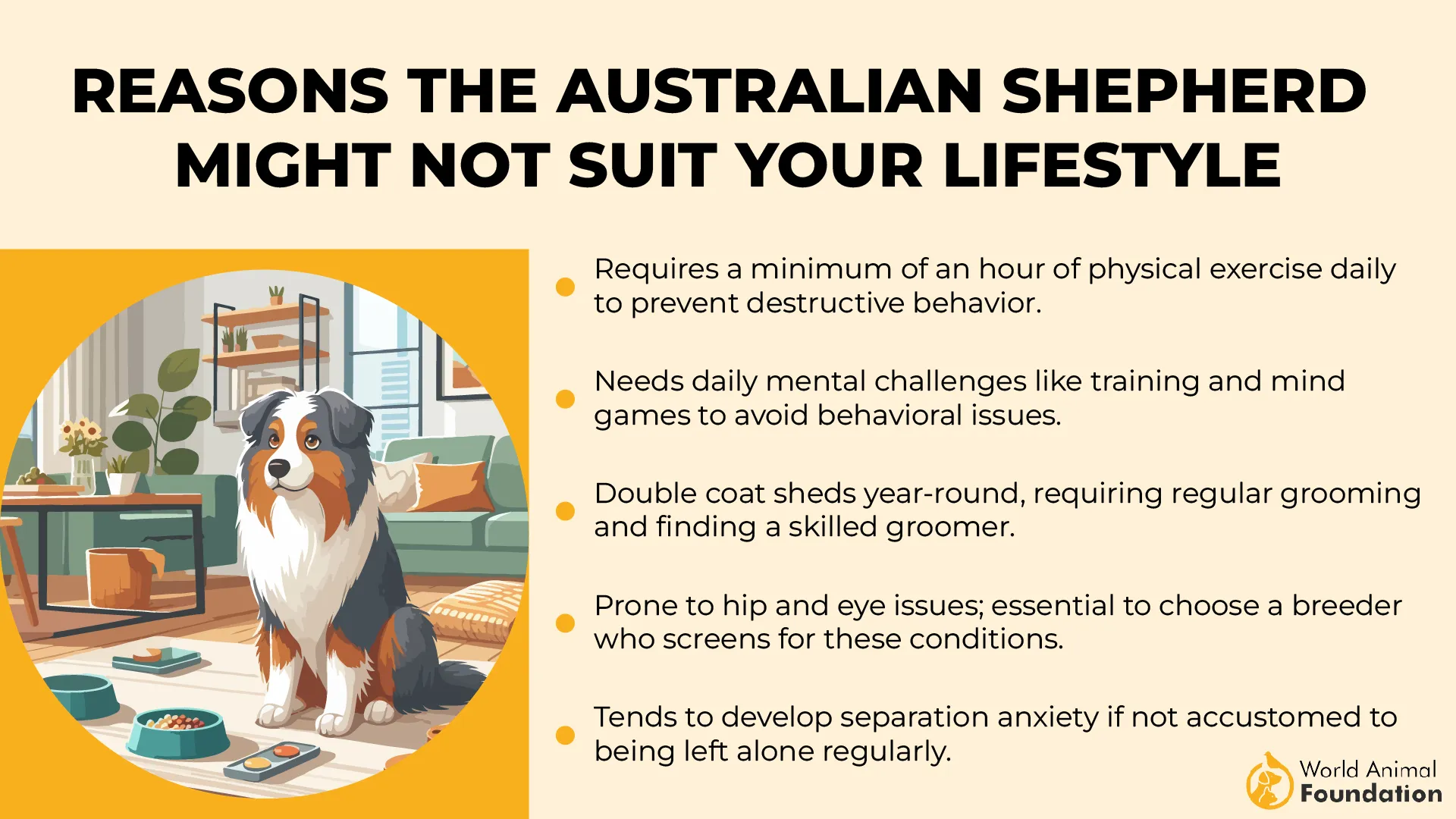
With proper care, Australian Shepherds are known to live healthy, vibrant lives. Their minimal health issues make them an excellent choice for families looking for a fun, energetic dog. Their longevity and overall vitality mean fewer trips to the vet and more time for enjoyment with your loyal companion.
Key Points
Key Point |
Details |
|---|---|
|
Average Lifespan |
12–15 years |
|
Common Health Concerns |
Hip dysplasia, cataracts, epilepsy |
|
Exercise Needs |
High energy, requires daily physical and mental stimulation |
|
Grooming Needs |
Moderate, occasional brushing needed |
|
Ideal Home Environment |
Active families or individuals |
3. Chihuahua
Chihuahuas are small dogs with big personalities, and they tend to remain healthy with minimal health problems. While they are prone to dental issues due to their small mouths, maintaining good oral hygiene can prevent these problems.
Other than that, they are generally free of major health concerns. Their small size makes them an ideal choice for low-maintenance care.
PetMD states that Chihuahuas are adaptable, thriving in apartment living or small spaces. Their low exercise requirements make them perfect for people with a less active lifestyle. Despite their small stature, they are hardy and resilient, enjoying long lifespans without the frequent vet visits that are common with other breeds. They offer big love in a small package, with minimal health worries.
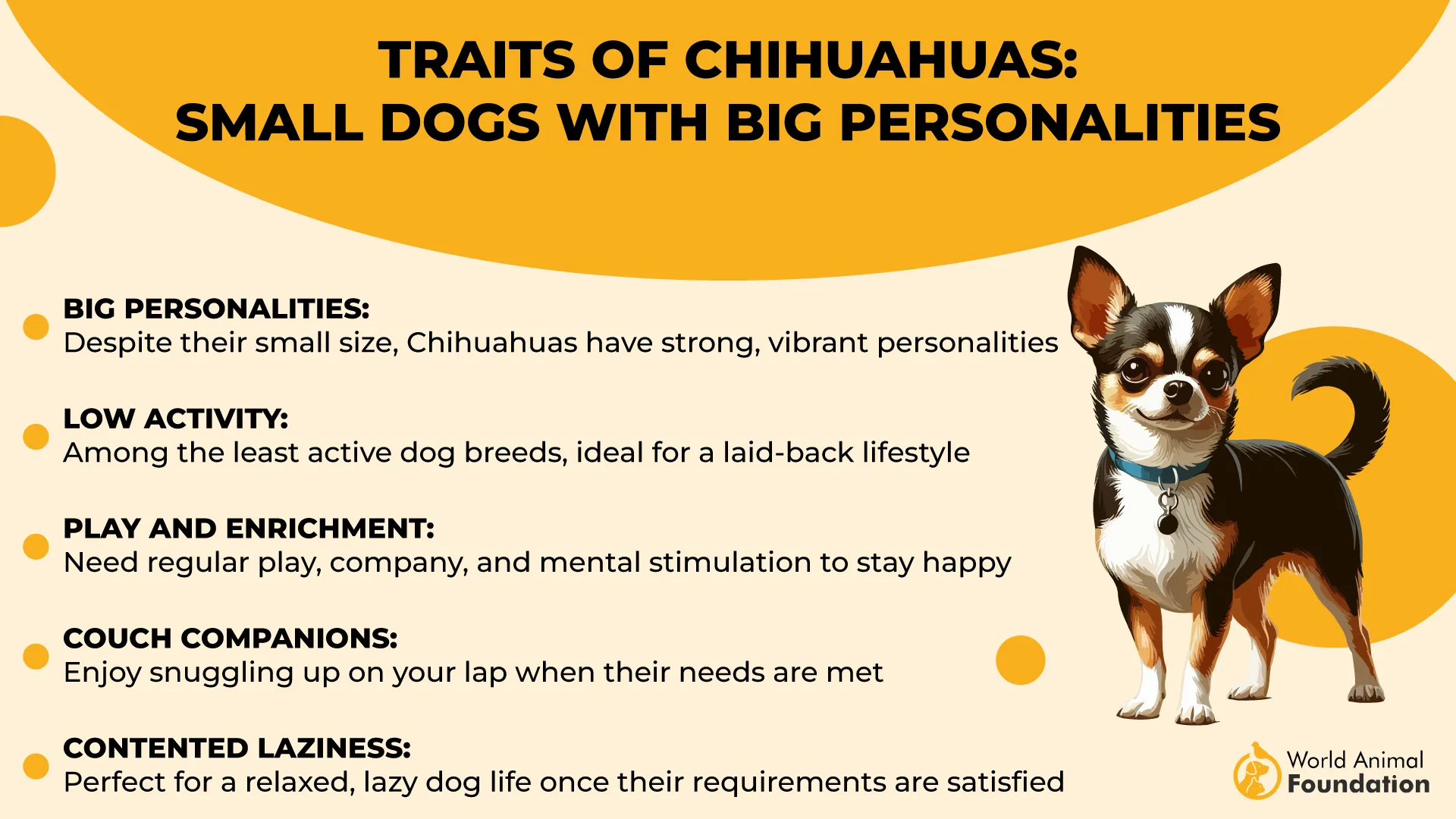
The longevity of Chihuahuas is another reason they’re such a popular breed. With proper care, they can live up to 15 years or more, providing years of companionship without significant health concerns.
Their ability to thrive in various environments while staying healthy makes them an excellent choice for first-time dog owners or anyone seeking a low-maintenance, loving companion.
Key Points
Key Point |
Details |
|---|---|
|
Average Lifespan |
12–20 years |
|
Common Health Concerns |
Dental issues, patellar luxation |
|
Exercise Needs |
Low, minimal exercise required |
|
Grooming Needs |
Low, minimal grooming needed |
|
Ideal Home Environment |
Apartment living, small spaces |
4. Beagle

Beagles are a friendly, well-rounded breed that remains healthy with proper care. While they are known to occasionally experience conditions like epilepsy or hip dysplasia, these issues are relatively rare and can be managed with regular vet care. Beagles generally enjoy good health, especially when kept on a balanced diet and given adequate exercise.
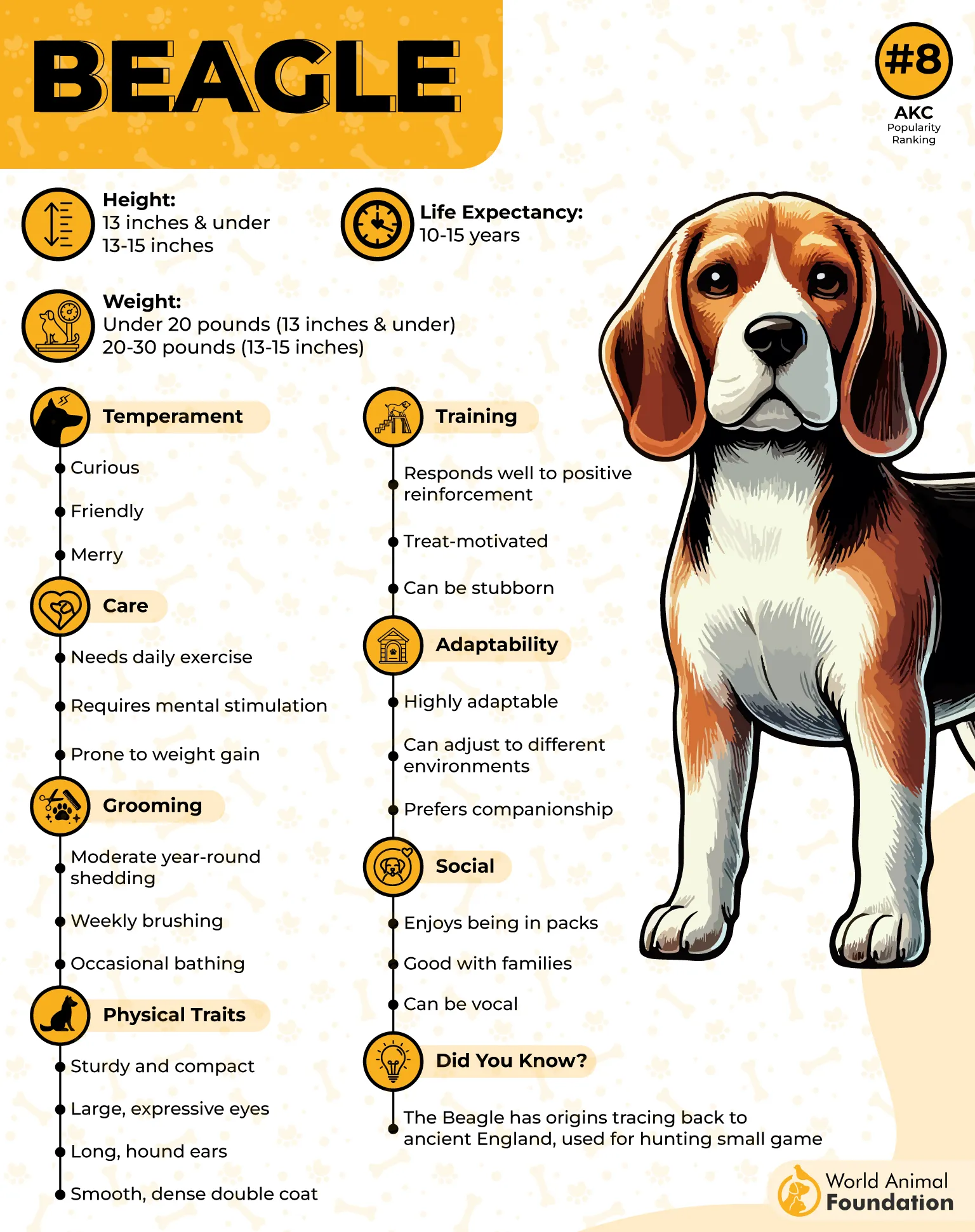
These dogs require moderate exercise and mental stimulation to keep them in optimal condition. As per Britannica, Beagles thrive in homes that can provide them with both physical activity and companionship.
Their low-maintenance health profile makes them an excellent choice for families, as they are generally free from genetic issues that affect other breeds.
Beagles’ long lifespan and healthy nature make them a reliable and low-risk companion. These dogs are not only fun-loving and energetic but also enjoy healthy, active lives without frequent visits to the vet. Their ability to adapt to family life while staying healthy makes them an ideal breed for many households.
Key Points
Key Point |
Details |
|---|---|
|
Average Lifespan |
12–15 years |
|
Common Health Concerns |
Hip dysplasia, epilepsy, and obesity |
|
Exercise Needs |
Moderate, daily walks or playtime |
|
Grooming Needs |
Low, occasional brushing |
|
Ideal Home Environment |
Active families, homes with yards |
5. Greyhound
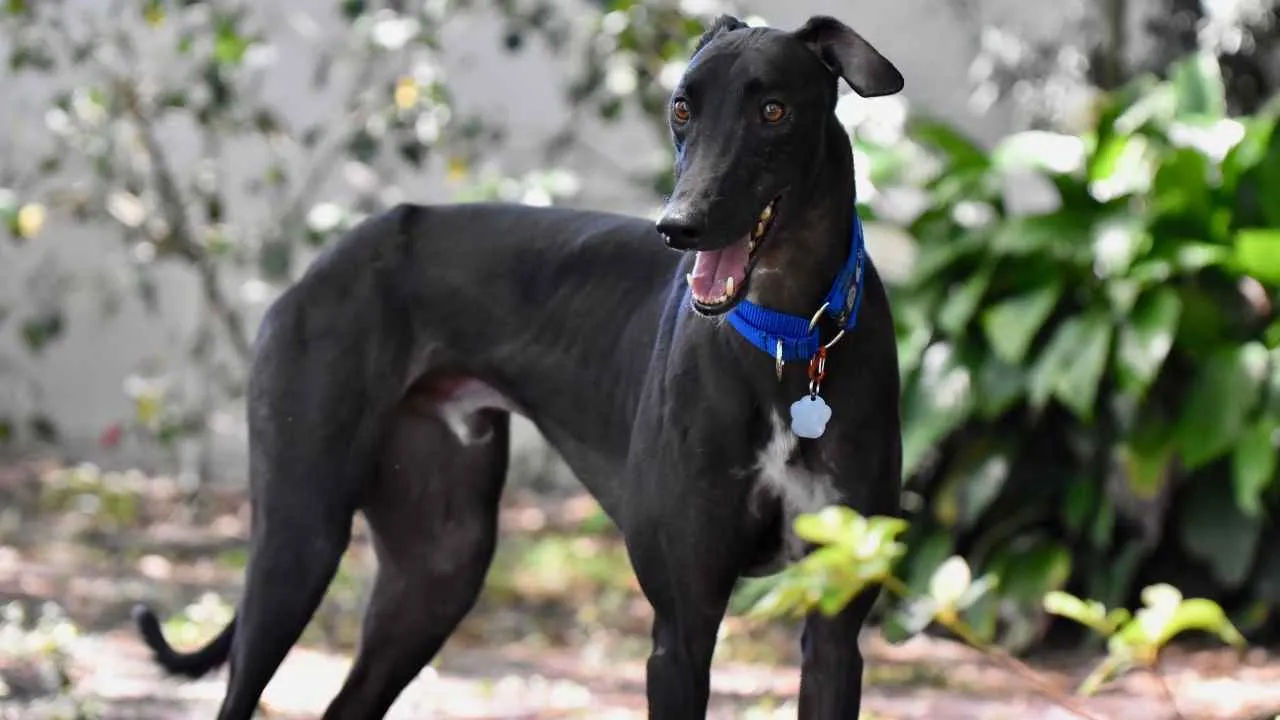
Greyhounds, often associated with racing, are surprisingly one of the healthiest dog breeds. Their low-maintenance health profile includes minimal issues with conditions like bloat or bone problems. These conditions are rare and can be avoided with proper care, making the Greyhound a fantastic, low-risk pet for many owners.
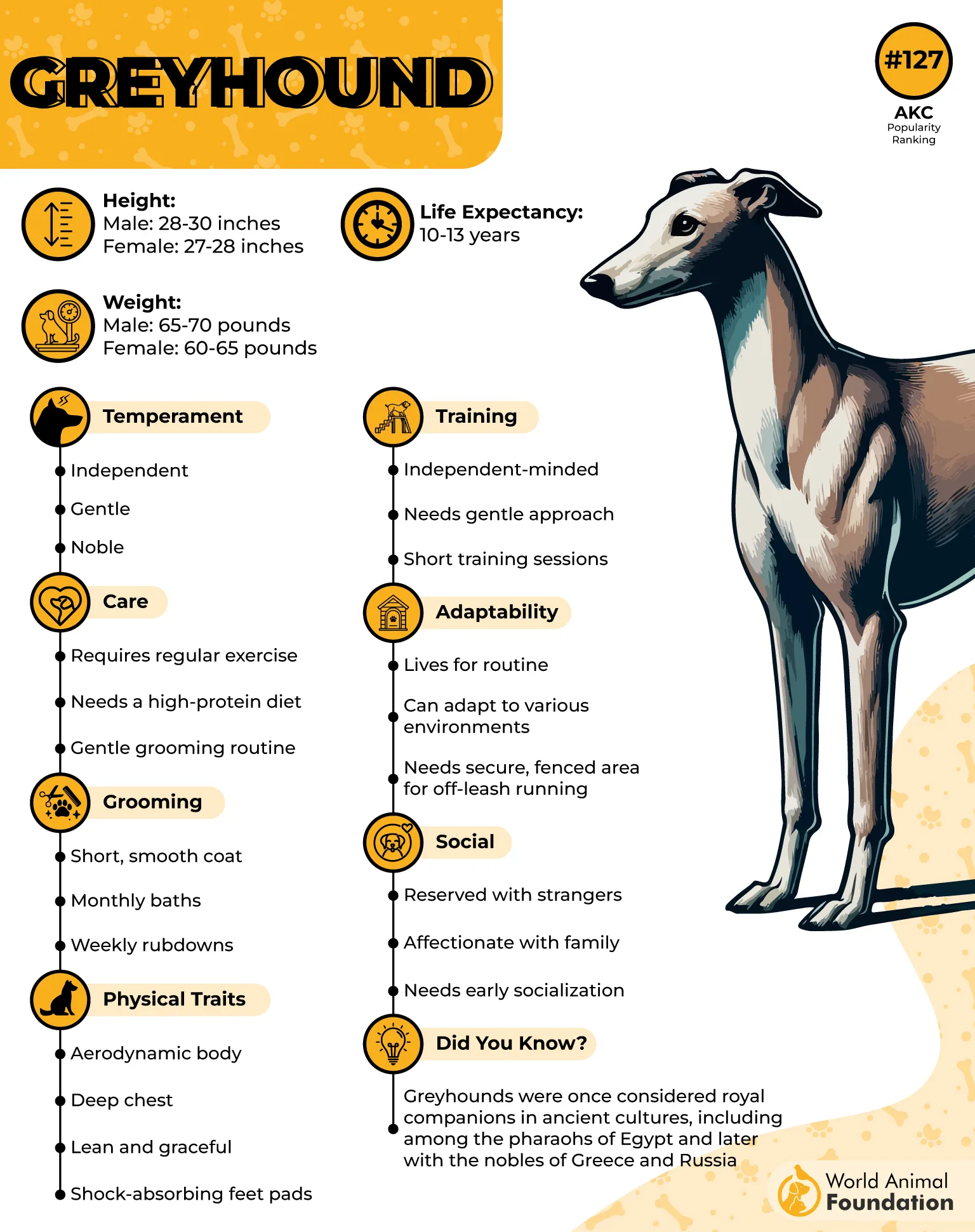
Though they are known for their speed, Greyhounds are surprisingly low-energy at home, requiring less exercise than many people assume. Their health remains strong if they receive appropriate activity and a balanced diet.
These dogs’ gentle, calm nature means they spend most of their time lounging, making them a great fit for quieter households.
Greyhounds typically enjoy long, healthy lives, with a lifespan of 10 to 14 years. Their minimal health concerns and serene temperament make them excellent companions. If you’re seeking a dog that is both healthy and low-maintenance, the Greyhound should be high on your list of potential breeds.
Key Points
Key Point |
Details |
|---|---|
|
Average Lifespan |
10–14 years |
|
Common Health Concerns |
Bloat, bone issues, and heart conditions |
|
Exercise Needs |
Moderate, daily walks or short bursts of exercise |
|
Grooming Needs |
Low, occasional brushing |
|
Ideal Home Environment |
Quiet households, homes with space for lounging |
6. Poodle
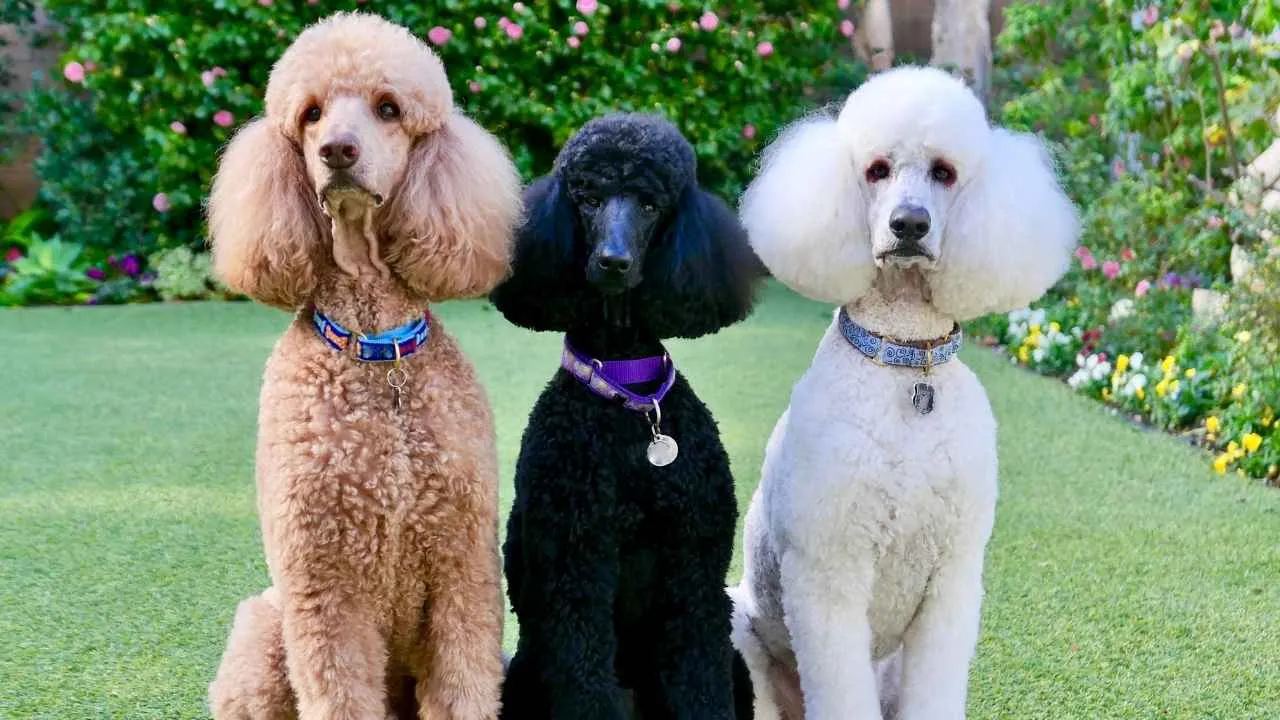
Poodles are one of the healthiest and most intelligent dog breeds. Whether standard, miniature, or toy, Poodles generally enjoy long, healthy lives with few major health concerns. Some common issues, such as hip dysplasia or skin conditions, are rare and manageable with proper care. Their hypoallergenic coat makes them a great choice for allergy sufferers as well.
They are active and enjoy regular exercise, making them great companions for families or individuals with active lifestyles. Their intelligence means they need mental stimulation, but their health remains strong when provided with proper care.
With minimal health risks compared to other breeds, Poodles offer a reliable, low-maintenance option for pet owners.
Poodles are known for their longevity, often living up to 15 years or more. Their minimal health concerns, combined with their affectionate nature, make them the perfect choice for families or those seeking a healthy, low-maintenance dog. Their overall resilience makes them one of the top breeds for anyone looking for a reliable and healthy pet.
Key Points
Key Point |
Details |
|---|---|
|
Average Lifespan |
12–15 years |
|
Common Health Concerns |
Hip dysplasia, skin conditions, and cataracts |
|
Exercise Needs |
Moderate, daily walks and playtime |
|
Grooming Needs |
High, regular grooming is needed due to a curly coat |
|
Ideal Home Environment |
Active families, individuals with time for care and grooming |
7. Havanese
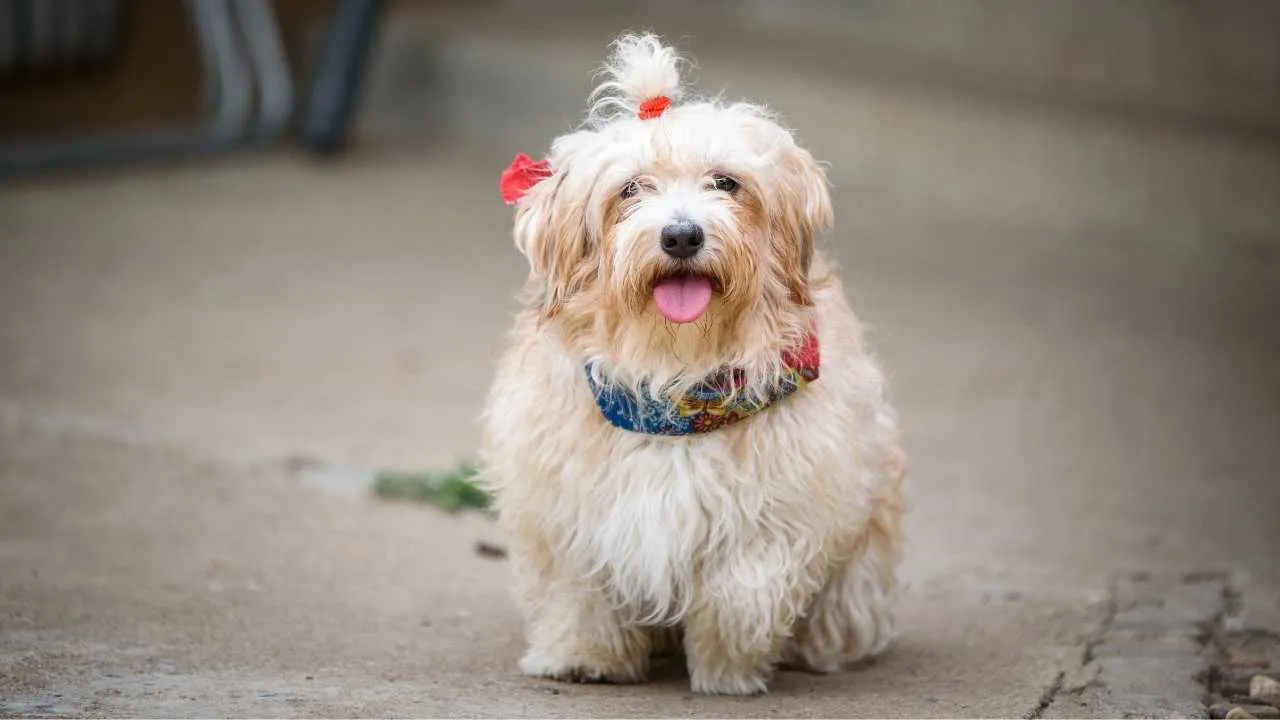
The Havanese is a small yet sturdy breed that remains healthy throughout its lifespan. They are known for their friendly and adaptable nature, making them easy to live with. Their few health concerns, such as eye problems or hip dysplasia, are rare and can be managed. Regular vet check-ups and a balanced diet ensure they live a long, vibrant life.
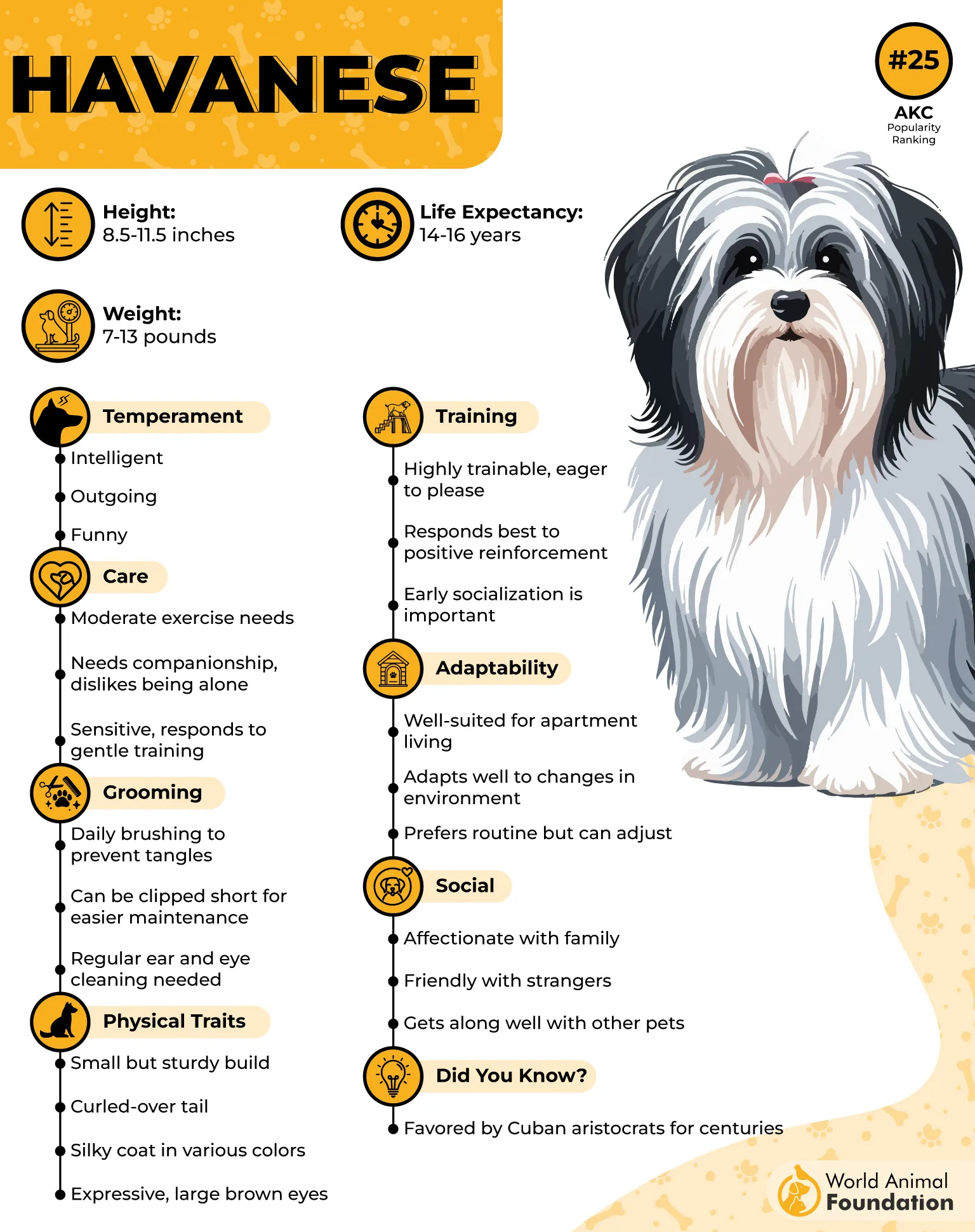
Havanese dogs thrive in environments where they receive regular attention and care. As per VCA, they enjoy moderate exercise, which keeps them healthy and energetic.
Their minimal health problems and lovable personalities make them an excellent companion breed for both families and individuals. With the right care, they will enjoy many happy years with you.
With a lifespan of around 14 to 16 years, the Havanese remains a healthy, loyal companion. Their charming personality and minimal health issues make them a great choice for anyone seeking a low-maintenance, loving dog. Their long life and few health problems provide peace of mind for their owners.
Key Points
Key Point |
Details |
|---|---|
|
Average Lifespan |
14–16 years |
|
Common Health Concerns |
Eye problems, hip dysplasia |
|
Exercise Needs |
Moderate, daily walks and playtime |
|
Grooming Needs |
Moderate, occasional grooming needed |
|
Ideal Home Environment |
Families, individuals looking for a low-maintenance pet |
Conclusion
Choosing a dog breed with minimal health issues doesn’t just give you peace of mind; it also opens the door to a long-lasting bond with a loyal, energetic friend. From the hardworking Australian Cattle Dog to the charming Havanese, each of these breeds offers both minimal health concerns and vibrant personalities.
While purebred dogs like the Australian Cattle Dog are known for being dog-healthy, hunting dogs such as the German Shorthaired Pointer are excellent in the field. Generally, healthy dogs like the Border Collies are incredibly intelligent, and large dog breeds such as the Siberian Husky are strong and resilient.
Even though not mentioned in the article, all these breeds are worth giving a chance, along with mixed-breed dogs, which often benefit from hybrid vigor. These dogs have the potential to bring years of joy, love, and laughter into your life. So, whether you’re an active family or an individual seeking a companion, consider adopting one of these healthy, resilient breeds. Your future furry friend is out there, ready to live a long, happy life by your side!


